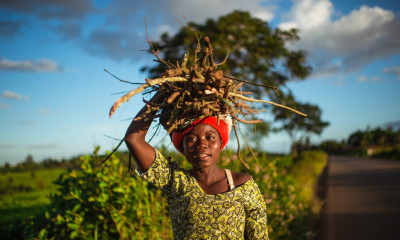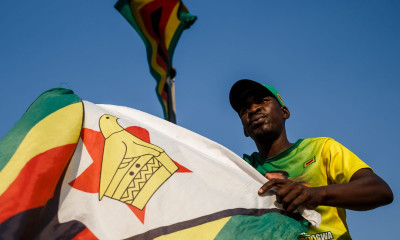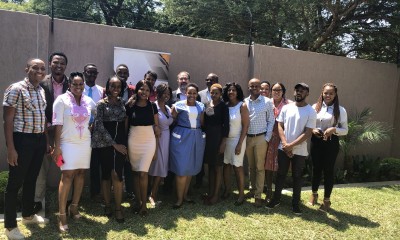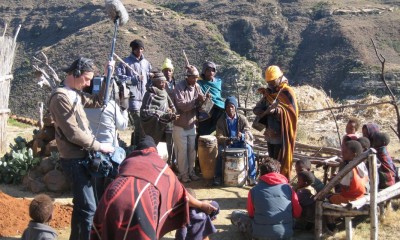This project is being co-created by the South African Institute of International Affairs (SAIIA) in Johannesburg, in partnership with the Tanzania Citizens’ Information Bureau (TCIB) and several civil society organisations in Tanzania
The Tanzania APRM civil society submission covers the following topics:
- union matters in the United Republic of Tanzania;
- constitutional history and the quest for constitutional democracy in Tanzania;
- human rights, rule of law and access to justice;
- social justice and social protection;
- civic space, freedom of association and the protection of human rights;
- promoting citizen participation and inclusion in democratic processes;
- freedom of the media and of expression;
- unlocking the potential of youth;
- climate change and climate justice; and
- public finance management and accountability.
Background
The APRM, established in 2003, is Africa’s premier governance self-assessment and promotion tool. The purpose of the APRM is “to foster the adoption of policies, standards and practices that lead to political stability, high economic growth, sustainable development and accelerated sub-regional and continental economic integration through reinforcement of best practices, including identifying deficiencies and assessing the needs for capacity building,” according to its founding documents.
In 2004, Tanzania voluntarily acceded to the APRM as a member of the African Union. This signalled the country’s commitment to enhance good governance and promote the rule of law. The APRM’s rules require that civil society is meaningfully involved in each country’s review process. President Jakaya Kikwete said “I am proud of the APRM process and I am also proud to be part of showcasing Africa’s innovative thinking with regard in promoting in the whole concept of good governance.” The APRM process in Tanzania focuses on “building the capacity on monitoring governance, developing partnerships and enhancing advocacy for efficiency, effectiveness and transparency in leadership.” Tanzania’s first review was completed in 2013, but the report was only published in 2017.
Timeline of the APRM process in Tanzania
- The government acceded to the mechanism by signing the Memorandum of Understanding (MOU) on 26 May 2004 and Tanzania’s Parliament ratified the MOU on 1 February 2005.
- In 2006, Tanzania commenced sensitisation on APRM with Parliament members and four stakeholder workshops, resulting in the formation of a 20-member National Governing Council.
- In mid-2006, Tanzania received the first Country Support Mission, which provided insights on how to better proceed with the APRM process.
- With the establishment of the National Secretariat in mid-2007, the operations of APRM Tanzania commenced.
- Between 3 and 4 March 2009, the Country Support Follow-up Mission (CSFM) visited Tanzania, with the objective of reviewing the achieved progress and exchanging views on how best to carry out the remaining activities aimed at accomplishing the process.
- Between 2-23 March 2012, the Country Review Mission, comprising 21 African experts and representatives from international organisations and the APR Secretariat, assessed Tanzania across the four APRM thematic areas.
- On 17 July 2017, the APRM Tanzania Base Report, prepared under the African Peer Review Process, was launched.
- Between 29 November and 1 December 2023, the Second Steering Committee’s technical workshop of the APRM Governance Index Project was hosted in Tanzania in preparation for the second-generation country review.
Key publications
After the CSFM visit to Tanzania in March 2009, the first Tanzania Country Self-Assessment Report was published in July of the same year. In January 2013, the APRM country review report No.17 and the National Programme of Action of the United Republic of Tanzania were published. The work is currently ongoing on the second-generation country review.
Download the report: Tanzania’s civil society submission to the APRM
Useful links:
- The South African Institute of International Affairs (SAIIA)
- The APRM Secretariat
- Tanzania APRM Country Page
- First Tanzania Country Review Report (2017)
- Tanzania APRM Country Self-Assessment Report (2012)
- Tanzania Draft National Programme of Action
- Tanzania APRM Sensitisation Document
- Implementing the APRM: Views from Civil Society – The Tanzania Report
- Parliamentary Engagement With Civil Society In Tanzania
- Civil society and the APRM process in Tanzania
- The APRM Toolkit – an online repository of APRM official documents and academic analysis
- Mastering the APRM: Creating Your Submission
- Monitoring APRM Implementation: A Civil Society How-To-Guide
See how similar processes unfolded in Malawi, Zimbabwe, South Africa, Botswana, Namibia and Lesotho:
- Read the Lesotho report here.







